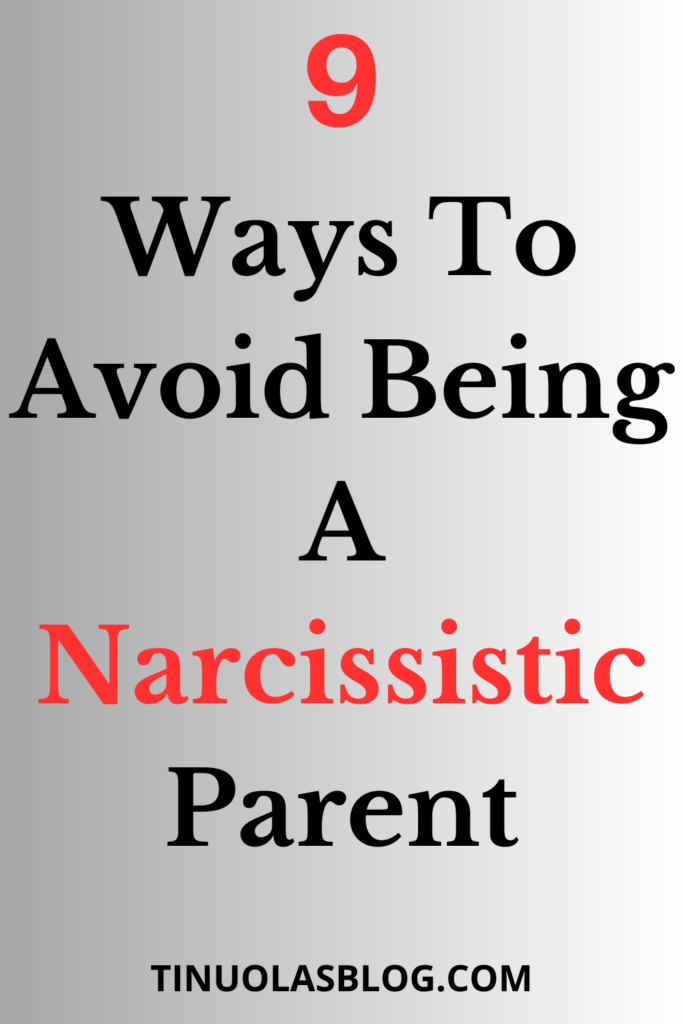When you become a parent, your entire focus shifts to your child.
You want the best for your little one and work tirelessly to provide them with everything they need.
However, in the midst of this, it’s easy to fall into the trap of thinking only about yourself and your wants and needs.
This is known as narcissism, and it’s not a positive trait to have in any relationship, let alone the bond between a parent and child.
Here are a few ways to avoid being a narcissistic parent and build a healthy relationship with your child.
Ways To Avoid Being A Narcissistic Parent
1. Be Present And Listen Actively

The first step in avoiding being a narcissistic parent is to be present and listen actively.
When your child is talking to you, put aside your phone, turn off the TV or any other distractions, and give them your undivided attention.
Be there for them, not just physically, but also emotionally. If they seem upset, ask them what’s wrong and listen to them without judgment or criticism.
Give them time to express themselves and validate their feelings.
2. Avoid Projecting Your Own Insecurities On Your Child
Narcissistic parents often project their own insecurities and anxieties on their children.
Do you find yourself pushing your child to do things just because you didn’t have the opportunity when you were younger?
Or do you find yourself being overly critical of their performance because you fear failure?
These are all signs that you may be projecting your own insecurities into your child.
To avoid this, take some time to examine your own thoughts and feelings.
Work through your own insecurities and do not let them affect your relationship with your child.
Avoid living vicariously through them and let them develop their own interests and passions.
3. Develop Empathy

Empathy is the ability to put yourself in someone else’s shoes and understand their feelings and emotions. It’s a crucial skill to have as a parent.
You may not always agree with your child, but you need to be able to understand their perspective and validate their emotions.
Empathy helps build trust and fosters a positive relationship with your child.
To develop empathy, try to see things from your child’s point of view. Ask them questions about why they feel a certain way or what they may be going through.
Don’t dismiss their emotions or feelings, acknowledge them and validate them.
4. Practice Positive Parenting Techniques
Positive parenting techniques focus on building a healthy relationship with your child.
This includes praise and encouragement instead of criticism and negative feedback. It’s important to let your child know that you love them unconditionally and are proud of them no matter what.
This helps build their self-esteem and confidence and makes them feel secure in their relationship with you.
Positive parenting techniques include active listening, positive reinforcement, and giving your child responsibilities and freedom to make age-appropriate choices.
5. Acknowledge And Apologize When You’re Wrong
We all make mistakes, and as a parent, you’re bound to slip up every now and then.
However, it’s important to acknowledge when you’re wrong and apologize to your child.
This teaches them the importance of taking responsibility for their actions and apologizing when necessary.
Apologizing also helps build trust and a positive relationship with your child. It shows them that you’re human and that even adults make mistakes.
It’s important to follow through with your apology and make a conscious effort to do better in the future.
6. Set Boundaries And Respect Your Child’s Boundaries
One of the ways to ways to avoid being a narcissistic parent is by setting and respecting your child’s boundaries.
Setting boundaries is crucial in any relationship.
As a parent, it’s important to set boundaries with your child and respect their boundaries as well.
This helps create a healthy balance and creates a sense of mutual respect in the relationship.
Setting boundaries can be as simple as having a set bedtime or rules around the use of technology.
Boundaries also include respect for personal space and privacy.
7. Seek Professional Help If Necessary

If you feel like you’re struggling to build a healthy relationship with your child and avoid narcissistic tendencies, seeking professional help may be necessary.
This could be therapy or counseling to help you understand your behavior and develop strategies to build a positive and healthy relationship with your child.
Don’t hesitate to seek help if you feel like you need it.
8. Practice Self-Awareness
Self-awareness is a crucial aspect of avoiding narcissistic parenting.
It’s essential to recognize our needs and how they can impact our children.
Becoming more self-aware can help you identify your triggers and patterns of behavior that may harm your children.
9. Listen To Your Children

As a parent, it’s important to listen to your child’s concerns and needs. Avoid interrupting or dismissing their feelings, as it can make them feel devalued and insignificant.
Paying attention to them can help nurture a healthy and loving relationship.
9. Don’t Compare Your Children
Parents should avoid comparing their children to others. Each child has unique strengths and weaknesses, and comparing them can make them feel insecure and inadequate.
9. Avoid Manipulating Your Children
Narcissistic parents may manipulate their children to fulfill their own needs without considering their child’s wants or feelings.
Manipulation can harm your child’s self-esteem and emotional well-being.
Parents should avoid manipulating their children and respect their autonomy.
Conclusion
Avoiding narcissistic tendencies as a parent is crucial in building a positive and healthy relationship with your child.
Remember, parenting is a journey and it’s okay to make mistakes along the way.
Focus on building a positive relationship with your child and nurturing them into the best possible version of themselves.
What Every Daughter Needs To Hear From Her Mother

